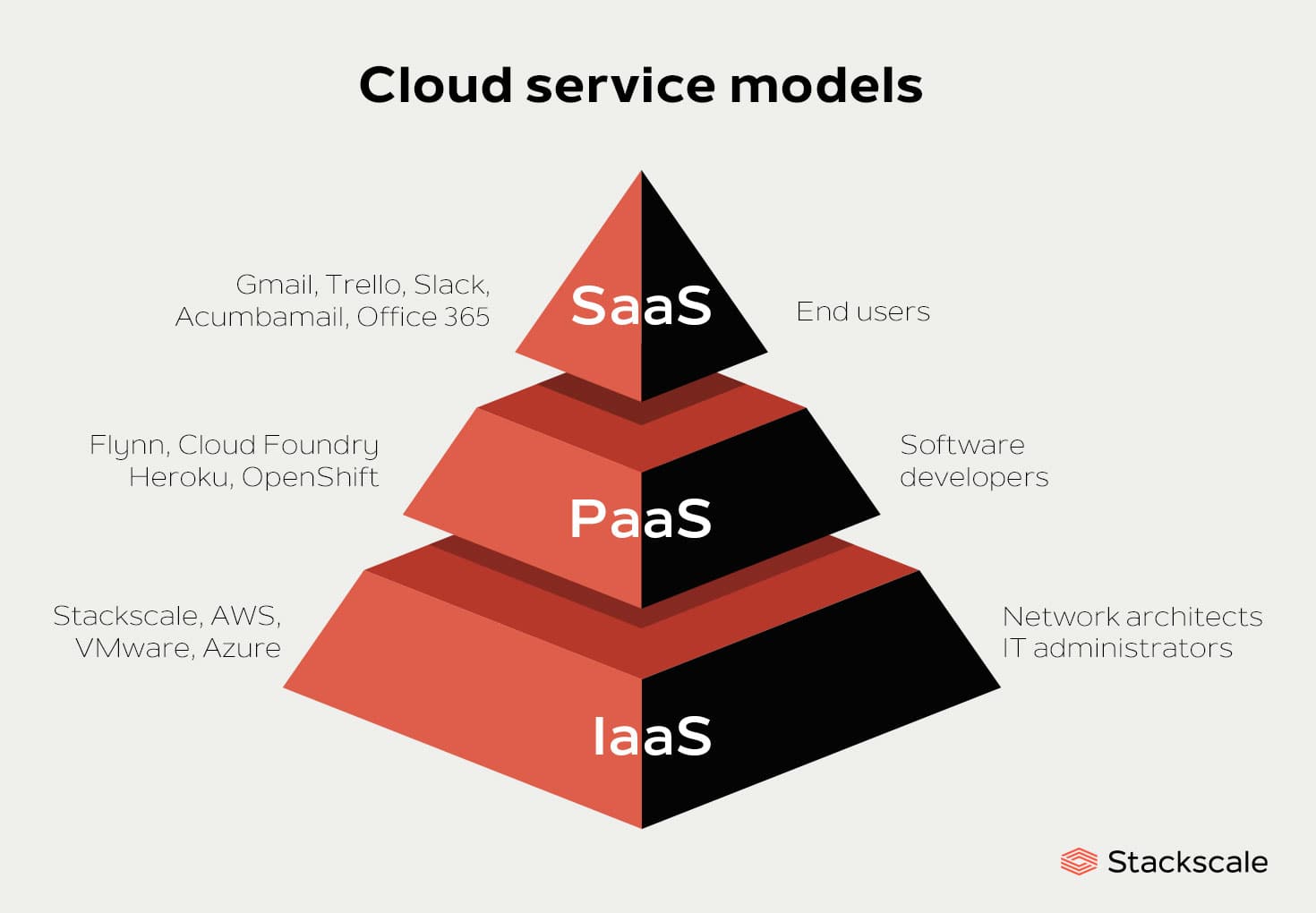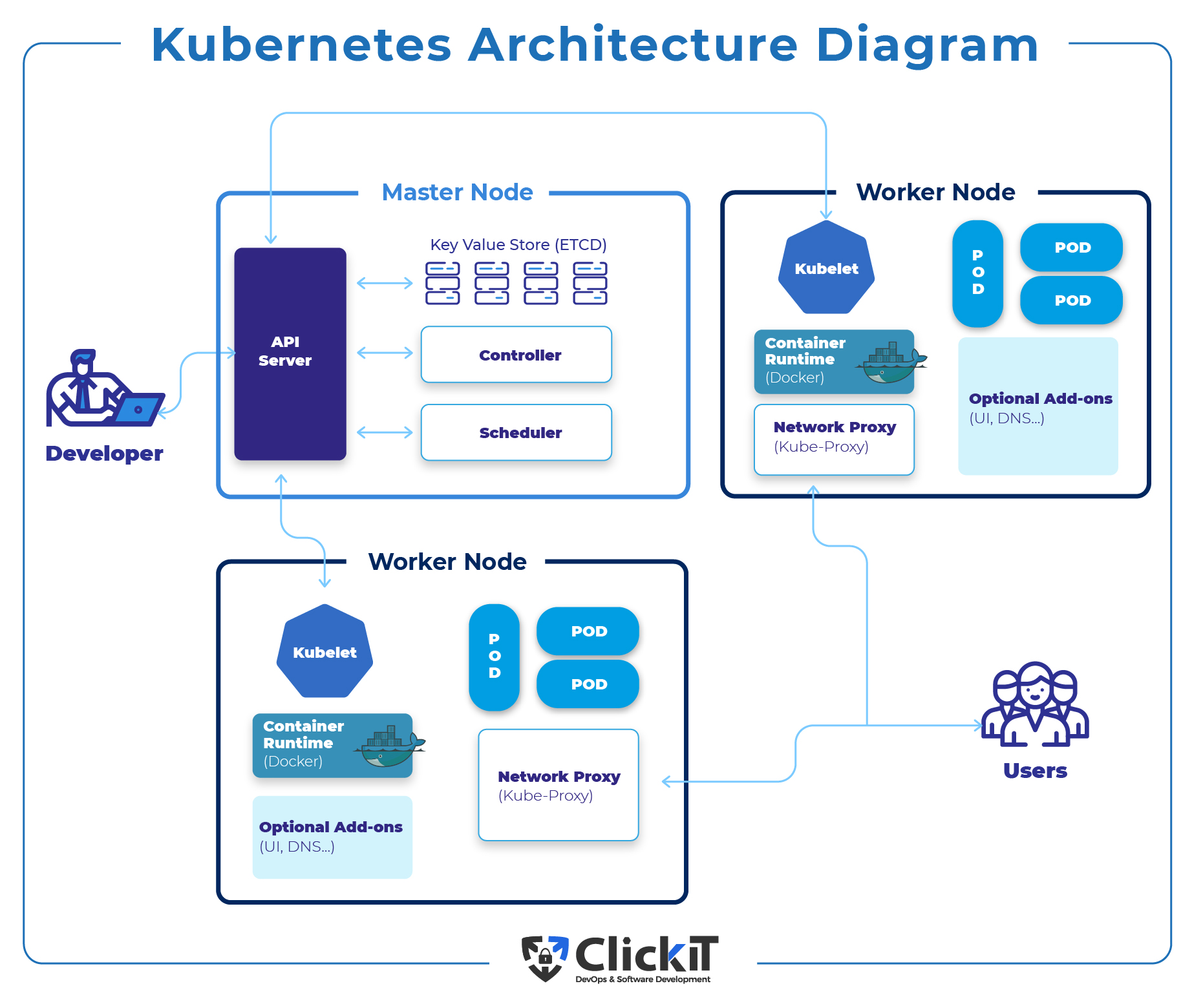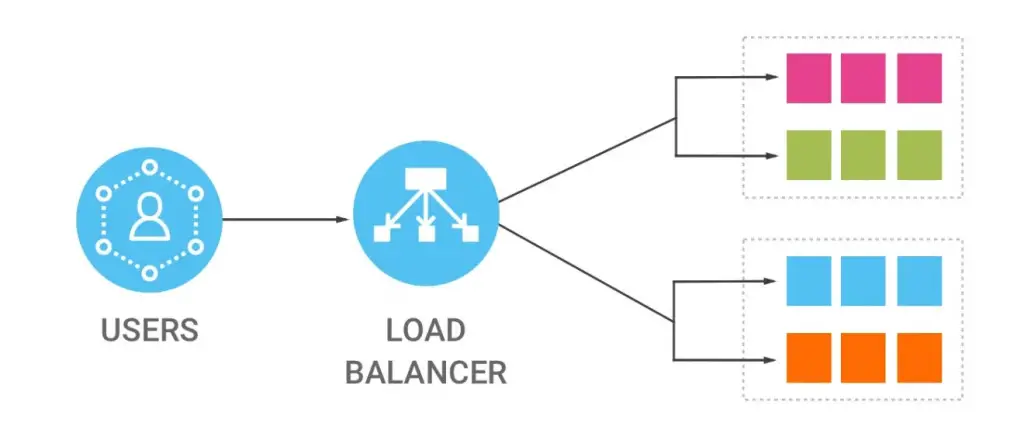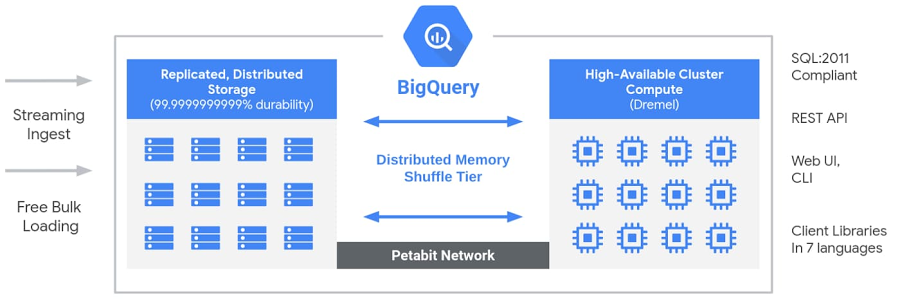Compute Engine: Google Cloud’s Infrastructure as a Service (IaaS)
Google Cloud’s Compute Engine is a robust Infrastructure as a Service (IaaS) offering, enabling users to launch virtual machines (VMs) on demand. This service forms an integral part of Google Cloud’s core infrastructure services, offering scalable computing resources to businesses and individuals alike. Compute Engine supports a wide variety of operating systems, including popular Linux distributions and Windows Server versions, empowering users to deploy applications and services tailored to their unique requirements.
Compute Engine’s VMs are customizable, allowing users to select the desired CPU platform, machine type, and boot disk. Users can also configure additional disk options, networking, and firewall settings to optimize their VMs for specific workloads. Moreover, Compute Engine integrates seamlessly with other Google Cloud services, such as Kubernetes Engine, Cloud Storage, and Cloud SQL, facilitating the creation of comprehensive and efficient cloud-based solutions.
Compute Engine’s flexible pricing model and sustained use discounts make it an attractive choice for businesses seeking to minimize costs while maximizing performance. By leveraging Compute Engine’s powerful infrastructure and extensive customization options, users can build, test, and deploy applications in a secure and scalable environment, ultimately contributing to the growth and success of their organizations.
Kubernetes Engine: A Managed Environment for Containerized Applications
Google Cloud’s Kubernetes Engine is a powerful, fully managed environment for deploying, scaling, and managing containerized applications using Google Cloud’s infrastructure. Built on Kubernetes, an open-source container orchestration system, Kubernetes Engine simplifies the process of managing containerized applications, allowing developers to focus on building innovative solutions rather than managing infrastructure.
Kubernetes Engine offers a range of features designed to streamline the deployment and management of containerized applications, including:
- Automated rollouts and rollbacks: Kubernetes Engine simplifies the deployment of new container versions and enables users to roll back to previous versions if issues arise.
- Service discovery and load balancing: Kubernetes Engine automatically configures load balancing and service discovery for applications, ensuring seamless communication between application components.
- Storage orchestration: Kubernetes Engine simplifies the management of persistent storage, enabling users to mount local or cloud-based storage systems to their containers.
- Horizontal scaling and load balancing: Kubernetes Engine allows users to scale their applications horizontally, adding or removing instances as needed to handle changes in traffic patterns. Additionally, Kubernetes Engine automatically load balances traffic among instances to ensure optimal performance.
- Self-healing: Kubernetes Engine continuously monitors the health of instances and automatically replaces unhealthy instances to maintain application availability.
- Secret and configuration management: Kubernetes Engine provides secure, centralized storage for sensitive information, such as passwords, OAuth tokens, and SSH keys, ensuring that applications can access the information they need while maintaining security and compliance requirements.
By leveraging Kubernetes Engine’s powerful features, developers can build, deploy, and manage containerized applications with ease, ultimately contributing to the success of their organizations.
Cloud Storage: Object Storage for Any Amount of Data
Google Cloud’s Cloud Storage is an object storage service designed for storing and retrieving any amount of data at any time. With a simple, intuitive interface and a variety of storage classes, Cloud Storage makes it easy for businesses and individuals to manage their data in the cloud, offering flexibility, scalability, and durability.
Cloud Storage offers several storage classes, each with unique characteristics tailored to specific use cases:
- Standard Storage: Designed for frequently accessed data, Standard Storage offers low latency and high throughput, making it ideal for active datasets, content distribution, and disaster recovery.
- Nearline Storage: Suited for data that is accessed less than once a month, Nearline Storage offers a lower cost than Standard Storage, with a 30-day minimum storage duration. This storage class is ideal for backup and archiving purposes, as well as long-term data retention.
- Coldline Storage: Designed for data that is accessed less than once a year, Coldline Storage offers the lowest cost among the storage classes, with a 90-day minimum storage duration. This storage class is ideal for long-term archiving, digital preservation, and disaster recovery.
- Archive Storage: The lowest-cost storage class, Archive Storage is designed for data that is accessed less than once a year and requires a retrieval time of several hours. This storage class is ideal for long-term retention, regulatory compliance, and digital preservation.
Cloud Storage integrates seamlessly with other Google Cloud services, such as Compute Engine, Kubernetes Engine, and BigQuery, enabling users to build comprehensive and efficient cloud-based solutions. By leveraging Cloud Storage’s powerful features, users can manage their data with confidence, ensuring availability, durability, and security.
Cloud SQL: A Fully Managed Relational Database Service
Google Cloud’s Cloud SQL is a fully managed relational database service, designed to make it easy for users to run, maintain, and scale their databases in the cloud. With support for both MySQL and PostgreSQL, Cloud SQL offers a variety of features tailored to the needs of modern database administrators and developers.
Cloud SQL simplifies the process of managing databases, offering:
- Automated backups: Cloud SQL automatically backs up databases, ensuring that users can easily recover data in the event of a failure or issue.
- Database replication: Cloud SQL enables users to create read replicas of their databases, improving read performance and scalability.
- Automated patch management: Cloud SQL automatically applies patches and updates to databases, ensuring that they remain secure and up-to-date.
- Integration with other Google Cloud services: Cloud SQL integrates seamlessly with other Google Cloud services, such as Compute Engine, Kubernetes Engine, and BigQuery, enabling users to build comprehensive and efficient cloud-based solutions.
- Encryption at rest and in transit: Cloud SQL encrypts data both at rest and in transit, ensuring that sensitive information remains secure and protected.
By leveraging Cloud SQL’s powerful features, users can focus on building innovative applications and solutions, rather than managing database infrastructure. With its ease of use, scalability, and robust security features, Cloud SQL is an ideal choice for businesses and individuals seeking a reliable and fully managed relational database service in the cloud.
Virtual Private Cloud (VPC): Defining a Virtual Network Topology in Google Cloud
Google Cloud’s Virtual Private Cloud (VPC) enables users to define a virtual network topology, providing isolation and secure communication between resources. With VPC, users can create and manage their own IP address ranges, subnets, and firewall rules, ensuring that their cloud-based resources are accessible only to authorized users and services.
VPC offers several key features, including:
- Subnets: Users can create subnets within their VPC, allowing them to organize resources and control access to specific IP address ranges.
- Firewall rules: VPC enables users to create firewall rules, controlling both inbound and outbound traffic to and from their resources. This ensures that only authorized traffic is allowed, enhancing security and privacy.
- VPN and Interconnect: VPC supports VPN and Interconnect, enabling users to securely connect their on-premises networks to their Google Cloud resources. This allows for seamless integration of cloud and on-premises resources, ensuring a consistent and secure network environment.
- Shared VPC: VPC supports Shared VPC, allowing users to share their VPC resources with other projects within their organization. This simplifies the management of resources and enhances collaboration among teams and projects.
- Private Google Access: VPC enables Private Google Access, allowing resources within the VPC to access Google Cloud services without exposing them to the public internet. This enhances security and privacy, ensuring that sensitive data remains protected.
By leveraging VPC’s powerful features, users can build and manage secure, scalable, and efficient cloud-based solutions, taking full advantage of Google Cloud’s robust infrastructure and services.
Cloud Load Balancing: A Fully Distributed, Software-Defined, Managed Service for All Your Traffic
Google Cloud’s Cloud Load Balancing is a fully distributed, software-defined, managed service for all your traffic. Designed to handle incoming traffic from the internet, Cloud Load Balancing ensures that your applications are highly available, scalable, and secure, regardless of their location or size.
Cloud Load Balancing offers several key features, including:
- Global load balancing: Cloud Load Balancing enables users to distribute traffic across multiple regions, ensuring high availability and low latency for their applications. This is achieved through the use of Google’s global network, which spans over 100 points of presence worldwide.
- Intelligent traffic management: Cloud Load Balancing uses advanced algorithms and techniques to route traffic intelligently, ensuring that applications receive the optimal amount of traffic at all times. This includes features such as HTTP/2 and QUIC protocol support, as well as automatic SSL certificate provisioning and management.
- Autoscaling: Cloud Load Balancing integrates seamlessly with Google Cloud’s autoscaling features, enabling users to automatically scale their applications up or down in response to changes in traffic patterns. This ensures that applications remain performant and cost-effective, even during periods of high demand.
- Security: Cloud Load Balancing offers robust security features, including support for SSL/TLS encryption, identity-aware proxy (IAP) integration, and integration with Google Cloud’s security services, such as Cloud Armor and Cloud IDS.
By leveraging Cloud Load Balancing’s powerful features, users can build and manage highly available, scalable, and secure applications in the cloud, taking full advantage of Google Cloud’s robust infrastructure and services.
BigQuery: A Fully Managed, Petabyte-Scale, and Cost-Effective Analytics Data Warehouse
Google Cloud’s BigQuery is a fully managed, petabyte-scale, and cost-effective analytics data warehouse that lets users run fast, SQL-like queries against multi-terabyte datasets in seconds. With its serverless architecture and powerful query engine, BigQuery enables users to focus on data analysis, rather than managing infrastructure or worrying about scaling.
BigQuery offers several key features, including:
- Serverless architecture: BigQuery’s serverless architecture enables users to run queries and analyze data without worrying about provisioning or managing infrastructure. This allows users to focus on data analysis, rather than infrastructure management.
- Powerful query engine: BigQuery’s powerful query engine enables users to run fast, SQL-like queries against multi-terabyte datasets in seconds. This is achieved through the use of advanced algorithms and techniques, such as columnar storage, distributed processing, and just-in-time compilation.
- Integration with other Google Cloud services: BigQuery integrates seamlessly with other Google Cloud services, such as Cloud Storage, Cloud Dataflow, and Cloud Datalab. This enables users to build end-to-end data pipelines, from data ingestion and processing to analysis and visualization.
- Security and compliance: BigQuery offers robust security and compliance features, including support for encryption at rest and in transit, identity and access management (IAM), and audit logging. This ensures that users’ data is protected and secure, while also meeting compliance requirements.
By leveraging BigQuery’s powerful features, users can build and manage scalable, cost-effective, and secure data warehouses in the cloud, enabling them to make data-driven decisions and gain insights from their data.
Cloud Dataflow: A Fully Managed Service for Transforming and Enriching Data
Google Cloud’s Cloud Dataflow is a fully managed service for transforming and enriching data in stream (real time) and batch (historical) modes with equal reliability and expressiveness. With its serverless architecture and powerful data processing capabilities, Cloud Dataflow enables users to focus on data processing and analysis, rather than managing infrastructure or worrying about scaling.
Cloud Dataflow offers several key features, including:
- Serverless architecture: Cloud Dataflow’s serverless architecture enables users to run data processing pipelines without worrying about provisioning or managing infrastructure. This allows users to focus on data processing and analysis, rather than infrastructure management.
- Unified programming model: Cloud Dataflow provides a unified programming model for both batch and stream data processing, based on the Apache Beam SDK. This enables users to write data processing pipelines once and run them on multiple data processing backends, such as Apache Flink, Apache Spark, and Google Cloud Dataflow.
- Integration with other Google Cloud services: Cloud Dataflow integrates seamlessly with other Google Cloud services, such as Cloud Storage, BigQuery, and Pub/Sub. This enables users to build end-to-end data pipelines, from data ingestion and processing to analysis and visualization.
- Autoscaling: Cloud Dataflow automatically scales up or down the number of workers based on the workload, ensuring optimal performance and cost-effectiveness. This enables users to process data of any size, from small to petabyte-scale datasets, without worrying about scaling.
By leveraging Cloud Dataflow’s powerful features, users can build and manage scalable, cost-effective, and efficient data processing pipelines in the cloud, enabling them to gain insights from their data and make data-driven decisions.







